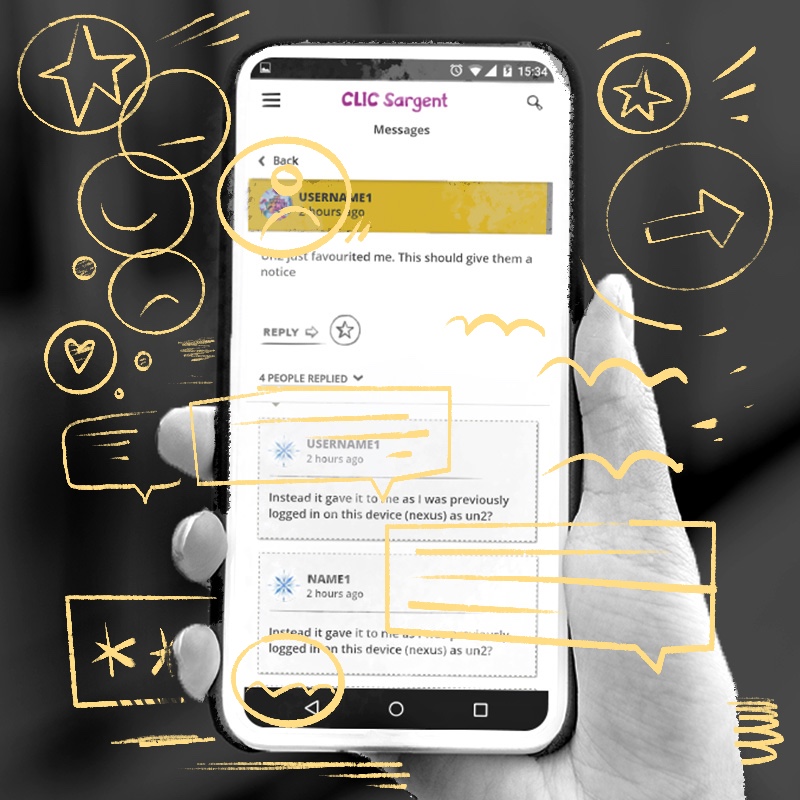
Young Lives vs Cancer Social Network
2014 - 2015


Hypothesis
That young people with cancer found engaging with existing social networks intimidating and isolating and a social network created by a leading cancer charity would create a safe space for peer support to flourish
Result
Failure
Process
Young Lives vs Cancer (previously known as CLIC Sargent) works with children and young people with cancer. Their core service is offering homes away from home when families have to travel with their kids to get clinical care. The idea for an online community stemmed from the teams in these homes observing how existing social media was causing lots of stress and anxiety along with being a source for incorrect information.
The product development process kicked off with workshops and plenaries with young people, aged from 16 to 24, to get a better understanding of their experiences and what a safe digital space would look like for them.
We followed a fairly standard product design process where we created a low fidelity web app based on the original hypothesis. We took a service design approach for onboarding with a community manager supporting people to get familiar with the space. Usage figures though remained stubbornly low both for daily active users and for posts. As a team we took on the feedback that this was a result of being a web rather than mobile app and released Android and iOS versions. That saw a brief uplift but not enough to create a sustainable network effect. Ultimately the product was taken offline.
The product suffered from an adoption failure. Social networks have a chicken-and-egg problem in the sense that it won’t be attractive to users till it has a lot of users. This was compounded by internal organisational concerns about hosting a social network for 16 - 24 year-olds. The default was that they should be considered children. Swear words were banned, posts were pre-moderated and the network wasn’t successfully “owned” by the users. It’s hard to put failures into a portfolio, but as a product team we weren’t able to successfully navigate through these problems, which led to the failure of the network.
We failed in large part because I failed to recognise how important championing the product internally was. Without internal advocates it was impossible to build the community from a user-centred approach and allow the users to take ownership of the space for their own conversations. I focussed too much on the - relatively simple - work of getting the technology and design to market and didn’t do the - much harder - work of pushing the internal culture to give the young people a safe space away from the corporate behemoths of the social media world.
Team
Regina Papachlimitzou (Community manager), Helen Thomas-Fox (Comms), Ross Pollard (Design), Simon Goodwin (Design) with dev support coming from IE Design
Tools
Photoshop, Microsoft Office, Jira, Trello
Technology
Angular front-end to Drupal content management system LEMP hardware stack